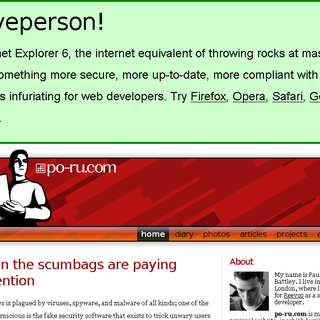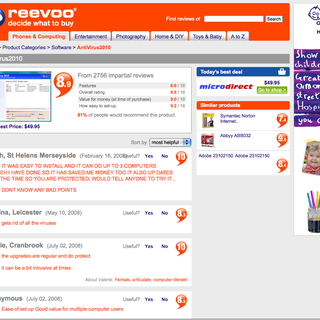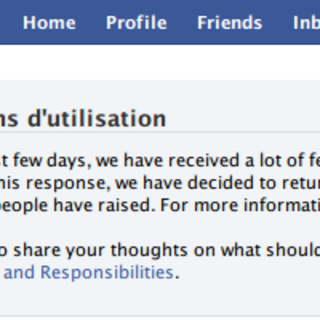Archive: 2009-02
Nobody likes it, everybody hates it, why won’t IE6 just die?

Web developers hate Internet Explorer 6. It was released in 2001—way back in the free, pre-dystopian days before 9/11—and all but abandoned by Microsoft shortly afterwards. It received a few security fixes, the last of which came in April 2008, but no new functionality. To be fair, back in 2001 it was a far better browser than most of the competition, but its stasis since then has harmed web development. IE6 doesn’t fully support version 2 of CSS (released in 1998!). Its JavaScript engine is slow. It exhibits a number of infuriating layout bugs. None of this would matter if people weren’t still using it, but, alas, a large enough proportion of the masses still clings to it that no commercial enterprise can afford to ignore IE6. Web development is thus hobbled, restricted to the lowest common denominator by the inadequacies of Internet Explorer 6.
Even the scumbags are paying attention

Windows is plagued by viruses, spyware, and malware of all kinds; one of the most pernicious is the fake security software that exists to trick unwary users into paying for useless crap. Rogue software vendors use fake popups that imitate Windows and bogus reviews to con people into thinking that they have a problem and that this software will solve it.
Internationalisation is hard

I’ve spent a lot of time recently working on internationalisation and localisation for ReevooMark as we prepare to take the service live with French retailers. It’s not been as hard as it could have been, but there are a lot of things we’ve had to consider. So I get a certain warm feeling from seeing even the big boys fail:
How to get XBMC to show Asian text
I recently rebuilt my media player computer to use XBMC as a front end. It’s a great piece of software: slick, usable, and powerful. It was originally written to run on the original X-Box, but it’s now available for several platforms. I’m running it on Linux/XOrg without a desktop environment, and it starts up really quickly.
Amazon and the Japanese rape simulator
Here’s a weird story. Amazon were, until a few days ago, stocking a Japanese rape simulation computer game. The Belfast Telegraph discovered the listing and was predictably shocked. Politicians piled in on the outrage—they couldn’t go wrong, after all.
BT are the matted faeces around a sheep’s anus
I have the kind of internet connection which, in this country, is officially classified as ‘broadband’. Of late, the previously tolerable speeds have become much worse. 300 KiB/s downloads have shrunk to 50 KiB/s in the evening—and, what’s worse, when a single HTTP connection is saturating the series of tubes, the congestion is so bad that it prevents even DNS requests. Download a file over a few megabytes, and I cannot browse another website until it’s finished.
The least worst option
I find the case of the toxic ship fascinating. In the rich industrialised world, we’ve often been able to pay poorer nations to take our waste. Our consumer electronics are broken up by hand in Guiyu. Our ships are pulled apart by men with basic hand-tools in Chittagong. It’s dangerous, dirty work that kills and maims and pollutes. And, of course, it’s also a source of employment and income for a great many people. But because it’s somewhere over there, we naturally don’t really concern ourselves with the damage to health or the environment. As the saying goes, don’t shit where you live. We have, in a sense, been shitting where other people live, though.